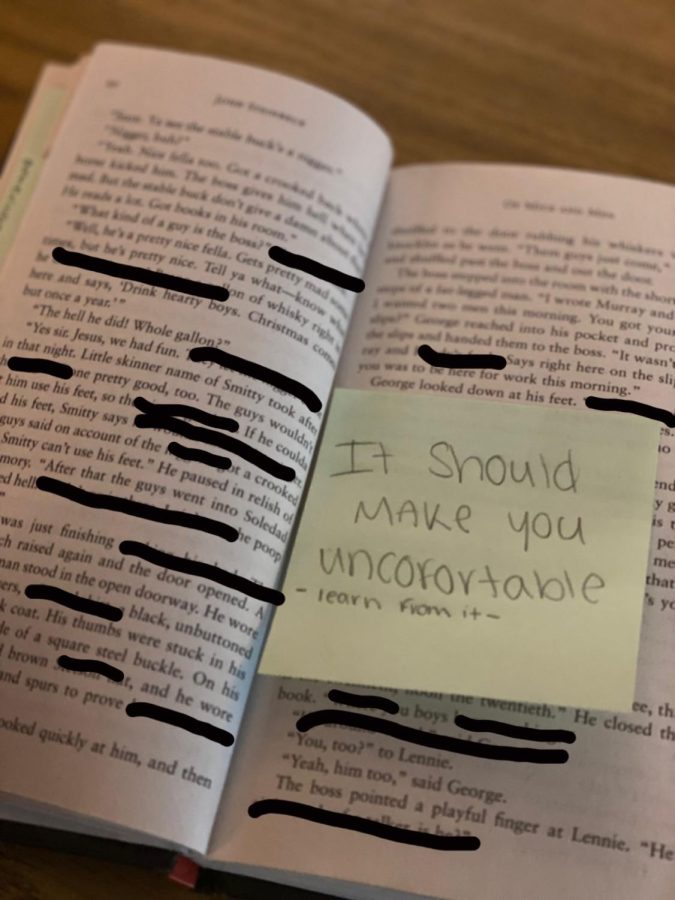History Censorship in Classrooms
“It should make you uncomfortable–learn from it”
December 21, 2022
There is a legislative war on education in America. A part of this war is the censorship occurring in the classrooms. Some state legislatures are getting away with this by executing educational gag orders. These are state legislative attempts to restrict teaching, training and learning in K-12 schools and higher education. According to Pen America, by the end of 2021, 54 bills restricting education had been filed in 22 states and 12 became law. These bills typically targeted discussions of race, gender, sexuality and even US history.
As 2022 progressed, these fights only intensified. Since the start of the year, 36 different states have introduced a total of 137 gag-order bills. As of August, only 7 of these had become law, but those passed include the most restrictive laws to date.
State censorship of the free flow of ideas and government restrictions on the freedom to read, to learn, and to teach are very concerning. State legislatures claim these gag-orders are necessary to avoid indoctrination of students. But in reality, this is going to happen to a student inside and especially outside the classroom. If students are not taught to the full extent of history or other curriculums, they are going to find it outside of school. But if they were so censored in the classroom they will not be able to comprehend these beliefs.
There is no reason to feed students half truths, and in reality this is causing something much worse than indoctrination. The vagueness of these laws pose significant constitutional issues from freedom of speech to freedom of religion.
One example of these censorship laws is Tennessee’s HB 2670 shown on Pen America. It prohibits public colleges and universities from including certain “divisive concepts” in any way during class. Educational gag orders that contain prohibitions on inclusion of certain concepts are the most restrictive, forbidding even neutral and objective discussions of particular ideas. Ideas that “promote division between, or resentment of, a race, sex, religion, creed, nonviolent political affiliation, social class, or class of people” may not be discussed/taught in the classroom. Pen America believes this law could be construed to mean that a professor teaching the US civil rights era or the Holocaust cannot include in the course historical sources that might inspire “resentment” of the Ku Klux Klan or the Nazis, each of which could be considered a “class of people,” a term that is not clearly defined.
The combination of extreme vagueness and extreme penalties in 2022 educational gag-order bills creates a chilling effect on teachers and schools as they become law. The restrictions introduced scare many teachers into changing their curriculums and lesson plans in order to comply with new legal restrictions.
Christian Ward, a student teacher at Fruita 8/9 is working towards teaching high school social studies. He has his own thoughts on the matter. “Censorship in the classroom is detrimental to teaching reality, especially when it comes to social studies as a subject. We as history and government teachers touch on issues that are generally regarded as “touchy subjects” such as slavery, racism, and the Holocaust just to name a couple, and for school districts to censor things that relate to those topics and events leads to true events being misunderstood.” He adds on saying, “people might not like to hear it but history is ugly, and we can’t paint history to be this beautiful thing when in reality it’s not. Censoring history is pushing a narrative and that is something that will severely impact the way history is taught.”
For our country to be effectively governed by the people, the people must be properly informed, and if students are not allowed to be taught the whole truth on history and other matters, how are we supposed to understand our country and its origins? We can’t learn from the mistakes of history if we don’t know what truly happened.

